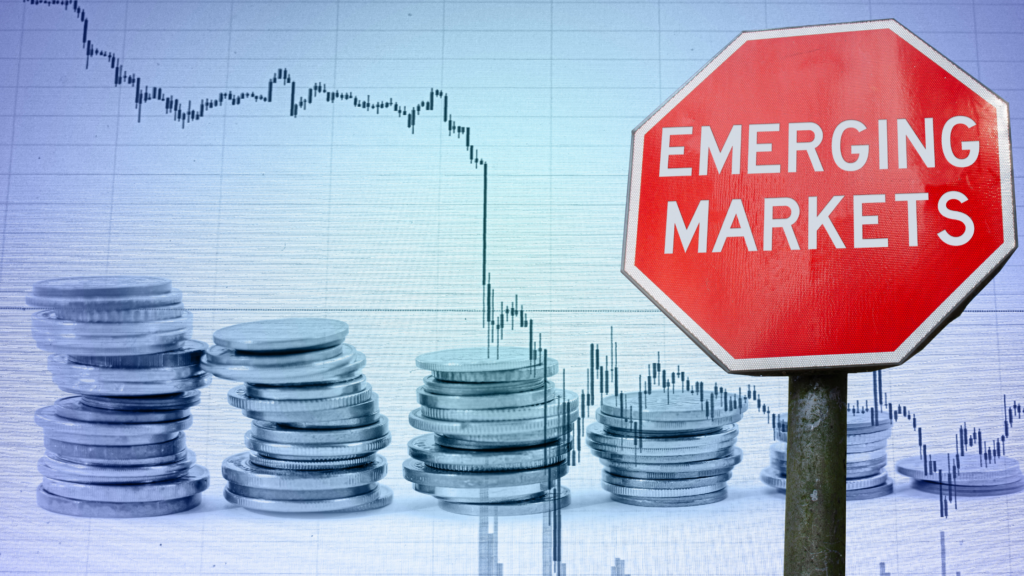Risks and Rewards of Impact Investing in Emerging Markets
Impact investing in emerging markets offers a unique opportunity to achieve substantial financial returns while fostering social and environmental progress. For organizations like Bottom Billion Corporation (BBC), this investment strategy aligns with their mission to promote sustainable development and economic empowerment. By understanding the intricate balance of risks and rewards, investors can make informed decisions that drive both profitability and positive change. This article explores the dynamics of impact investing in emerging markets, providing insights into the benefits and challenges of this powerful investment approach. Understanding Impact Investing in Emerging Markets Defining Impact Investing Impact investing refers to investments made with the intention of generating positive, measurable social and environmental impact alongside a financial return. Emerging markets, characterized by rapid economic growth and development, present unique opportunities for impact investors. The Appeal of Emerging Markets Emerging markets are attractive to impact investors due to their high growth potential and the opportunity to address pressing social and environmental challenges. Countries in regions such as Asia, Africa, and Latin America are experiencing significant economic development, offering a fertile ground for impactful investments. The Rewards of Impact Investing in Emerging Markets High Growth Potential Investing in emerging markets can yield high returns due to the rapid economic growth in these regions. Sectors such as renewable energy, healthcare, and education are expanding rapidly, driven by increasing demand and government support. Impact investors can capitalize on these growth opportunities while contributing to sustainable development. Positive Social and Environmental Impact Impact investing enables investors to address critical social and environmental issues. By funding projects in renewable energy, healthcare, and education, investors can improve living standards, reduce poverty, and promote environmental sustainability. These positive outcomes align with global development goals and enhance the overall impact of investments. Diversification Benefits Including emerging markets in an investment portfolio provides diversification benefits. These markets often have different economic cycles compared to developed markets, reducing overall portfolio risk. Diversifying into high-growth emerging markets can enhance portfolio performance and resilience. The Risks of Impact Investing in Emerging Markets Political and Economic Instability Emerging markets can be volatile, with political and economic instability posing significant risks. Changes in government, regulatory policies, and economic conditions can affect the performance of investments. Investors must conduct thorough due diligence and continuously monitor the political and economic landscape. Currency Fluctuations Currency risk is a major consideration for impact investors in emerging markets. Exchange rate volatility can impact the returns on investment, particularly when converting profits back into the investor’s home currency. Hedging strategies can mitigate some of this risk, but investors must be prepared for potential fluctuations. Regulatory Challenges Navigating the regulatory environment in emerging markets can be complex. Different countries have varying regulations and compliance requirements, which can affect investment operations. Investors need to stay informed about local regulations and engage with local partners to ensure compliance. Strategies for Successful Impact Investing in Emerging Markets Conduct Thorough Due Diligence Thorough due diligence is crucial for mitigating risks and ensuring successful investments. Investors should assess the political, economic, and regulatory environment of the target market. Evaluating the credibility and track record of local partners is also essential. Engage with Local Partners Partnering with local organizations and stakeholders can enhance the success of impact investments. Local partners provide valuable insights into the market, help navigate regulatory challenges, and facilitate community engagement. Collaborative efforts can amplify the impact and sustainability of investments. Diversify Investments Diversification within emerging markets is key to managing risk. Investing across different sectors and regions can reduce exposure to any single market or sector. A diversified approach enhances the potential for positive returns and mitigates the impact of market volatility. Leverage Technology and Innovation Technology and innovation play a critical role in impact investing. Utilizing digital platforms, data analytics, and innovative financial instruments can enhance investment decisions and improve outcomes. Technology-driven solutions can also increase transparency and accountability in impact investments. Impact investing in emerging markets presents a unique blend of high rewards and significant risks. By understanding the dynamics of these markets and adopting strategic approaches, investors can achieve substantial financial returns while contributing to sustainable development and economic empowerment. For organizations like Bottom Billion Corporation, impact investing aligns with their mission to promote global development and create lasting positive change.
Risks and Rewards of Impact Investing in Emerging Markets Read More »

